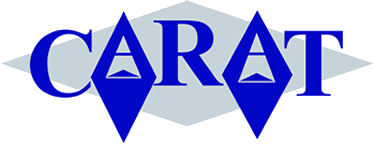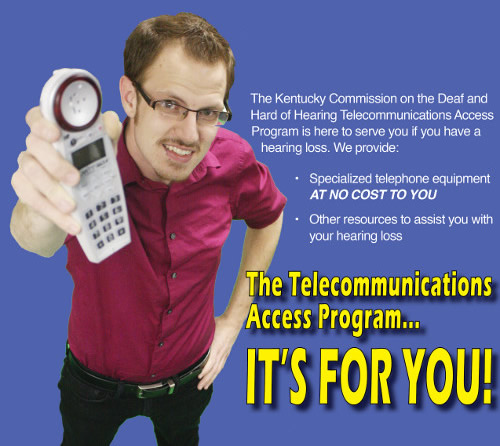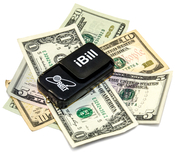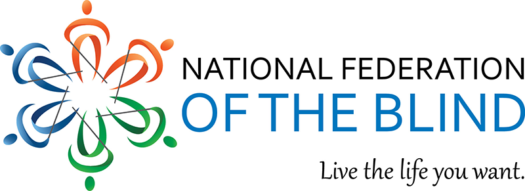Below is a partial listing of programs that distribute Assistive Technology at little to no cost to the individual. These programs are often supported through government funding and/ or grants and have specific eligibility requirements. Please contact the programs directly for more information.
Coordinating and Assisting the Reuse of Assistive Technolgy (CARAT)
 The goal of Project CARAT (Coordinating and Assisting the Reuse of Assistive Technology) is to make Assistive Technology and Durable Medical Equipment more accessible to those who need it in underserved areas of Kentucky. In order to make this happen, Project CARAT is partnering with agencies across the state. We’ll take donated equipment, clean it, make repairs if we need to, and then redistribute it to people who need it. Project CARAT is a KATS Network supported program under the federal Assistive Technology Act.
The goal of Project CARAT (Coordinating and Assisting the Reuse of Assistive Technology) is to make Assistive Technology and Durable Medical Equipment more accessible to those who need it in underserved areas of Kentucky. In order to make this happen, Project CARAT is partnering with agencies across the state. We’ll take donated equipment, clean it, make repairs if we need to, and then redistribute it to people who need it. Project CARAT is a KATS Network supported program under the federal Assistive Technology Act.
For More Information: https://www.katsnet.org/services/at-reuse/
RampUp! KY
 The Kentucky Assistive Technology Services Network, Centers for Independent Living, and the University of Kentucky have established a portable ramp loaner program through a grant from the Christopher Reeve Foundation High Impact Assistive Technology Grant Program.
The Kentucky Assistive Technology Services Network, Centers for Independent Living, and the University of Kentucky have established a portable ramp loaner program through a grant from the Christopher Reeve Foundation High Impact Assistive Technology Grant Program.
For More Information: http://www.katsnet.org/rampup/
Telecommunications Access Program (TAP)
 The Kentucky Commission on the Deaf and Hard of Hearing’s (KCDHH) Telecommunications Access Program (TAP) provides residents of Kentucky, who are deaf, hard of hearing, speech impaired or have both a hearing and vision loss, with landline or wireless equipment to make communication on the telephone more accessible. The program is funded by a small surcharge on all telecommunication access lines throughout the state.
The Kentucky Commission on the Deaf and Hard of Hearing’s (KCDHH) Telecommunications Access Program (TAP) provides residents of Kentucky, who are deaf, hard of hearing, speech impaired or have both a hearing and vision loss, with landline or wireless equipment to make communication on the telephone more accessible. The program is funded by a small surcharge on all telecommunication access lines throughout the state.
For More Information: https://www.kcdhh.ky.gov/ifyky/
iCanConnect – National Deaf-Blind Equipment Distribution Program
 iCanConnect, also known as the National Deaf-Blind Equipment Distribution Program, is an FCC program administered by organizations in all 50 states as well as Puerto Rico and the U.S. Virgin Islands. If you have significant combined vision and hearing loss and meet federal income guidelines, iCanConnect can provide you with free communication technology and training to stay connected with family and friends.
iCanConnect, also known as the National Deaf-Blind Equipment Distribution Program, is an FCC program administered by organizations in all 50 states as well as Puerto Rico and the U.S. Virgin Islands. If you have significant combined vision and hearing loss and meet federal income guidelines, iCanConnect can provide you with free communication technology and training to stay connected with family and friends.
For More Information: http://www.icanconnect.org/how-to-participate/kentucky
U.S. Currency Reader Program
 The U.S. Bureau of Printing and Engraving (BEP) is providing currency readers, free of charge, to eligible blind and visually impaired individuals. The U.S. Currency Reader Program provides some immediate relief to the blind and visually impaired population, while addressing the transition that will occur during the co-circulation of notes with and without tactile and high contrast features.
The U.S. Bureau of Printing and Engraving (BEP) is providing currency readers, free of charge, to eligible blind and visually impaired individuals. The U.S. Currency Reader Program provides some immediate relief to the blind and visually impaired population, while addressing the transition that will occur during the co-circulation of notes with and without tactile and high contrast features.
Currency readers became widely available to all U.S. citizens, or persons legally residing in the U.S. who are blind or visually impaired, on January 2, 2015. Individuals interested in receiving a currency reader through the U.S. Currency Reader Program must submit an application, signed by a competent authority who can certify eligibility.
For More Information: http://www.moneyfactory.gov/uscurrencyreaderpgm.html
National Federation of the Blind
Free Slate and Stylus Program
 The National Federation of the Blind will distribute a plastic, four-line, twenty-eight cell slate along with a saddle stylus to those that need them. That includes those that are blind and low vision who know Braille or want to learn Braille.
The National Federation of the Blind will distribute a plastic, four-line, twenty-eight cell slate along with a saddle stylus to those that need them. That includes those that are blind and low vision who know Braille or want to learn Braille.
Any blind individual in the fifty states, the District of Columbia, and Puerto Rico can request a slate and stylus for their personal use. Requests can be made as often as once per year.
For More Information: https://www.nfb.org/programs-services/free-slate-and-stylus-program
Free White Cane Program
Any blind individual in the fifty states, the District of Columbia, and Puerto Rico can request a cane for their personal use. Requests can be made as often as every six months. The canes distributed through the free white cane program are straight fiberglass canes (i.e., not folding or telescoping). All canes are white with a loop on top of the handle and come with a cane tip.
For adult first-time cane users, we recommend measuring from your shoulders to the floor. The cane needs to reach about two steps in front of where you are stepping. The speed of your pace and length of your stride will make a difference. More experienced cane travelers may wish to have a longer cane, measuring at least chin height.
For children, teens, and young adults who are first-time cane users, we recommend measuring from your chin to the floor. More experienced cane travelers may wish to have a longer cane, measuring at least nose height.
To request a white cane, you can fill out an online application or mail a completed application to our office.
- Free White Cane Online Application
- Free White Cane Application (PDF); please mail the completed PDF application to Free White Cane Program, National Federation of the Blind, 200 East Wells Street at Jernigan Place, Baltimore, Maryland 21230
